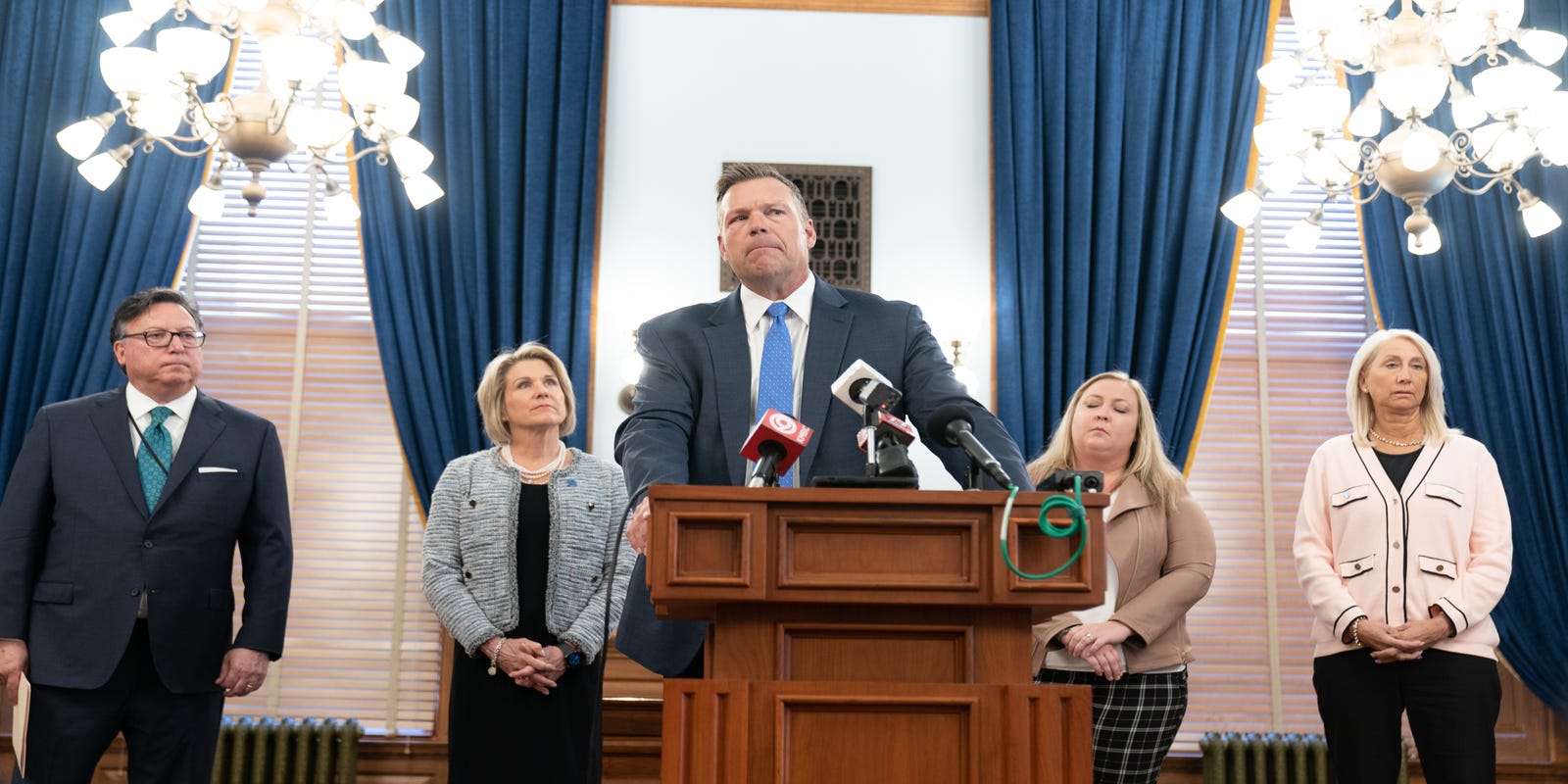
Transgender Kansans will continue to be denied gender marker changes to their drivers licenses after a judge in Topeka sided with Attorney General Kris Kobach.
Shawnee County District Court Judge Teresa Watson issued a ruling on Monday granting Kobach’s request for a temporary injunction against Gov. Laura Kelly’s administration.
Monday’s order is a formalization of a temporary restraining order that has been in place since July blocking the Kansas Department of Revenue from changing gender markers on drivers licenses.
Watson wrote, “There is a substantial likelihood the Attorney General will prevail in his effort to enforce” a new law, known as Senate Bill 180, that strictly defines sex based on reproductive anatomy at birth. The so-called “women’s bill of rights” was passed by the Republican-led Legislature last session over the veto of Kelly, a Democrat.
“This decision is a victory for the rule of law and common sense,” Kobach, a Republican, said in a statement. “The Legislature wisely stated that state agencies should record biological sex at birth, and today the court held that the meaning of the law is clear.”
Prep for the polls: See who is running for president and compare where they stand on key issues in our Voter Guide
The decision could presumably be appealed by the governor’s administration or the ACLU of Kansas, which represented several transgender people involved in the case.
“We are reviewing the court’s decision to determine potential next steps,” said Grace Hoge, a Kelly spokesperson, in an email.
D.C. Hiegert, the ACLU’s LGBTQ+ legal fellow, said in a statement that the organization is also considering its next steps.
Hiegert said the ruling “will result in transgender people experiencing harassment, denial of services, or worse.”
“We will continue working toward a vision of our state that allows all of us to live in peace, free from government persecution and impositions on our core identities,” Hiegert said. “We remain unconvinced that the imaginary injury to the state could ever outweigh the enormous harm our clients and other transgender Kansans have and will continue to experience by being forced to carry inaccurate identification documents, in violation of their rights under the state constitution.”
Watson said the intervenors “demonstrated no constitutional infirmity” with their arguments that the law violates the Kansas Constitution’s bill of rights protections, including personal autonomy. She said it would be “an unreasonable stretch” to apply the Kansas Supreme Court’s landmark 2019 ruling on abortion rights.
The decision comes two months after the court held oral arguments.
Kobach based much of his case on asserting an injury to law enforcement. He put Shawnee County Sheriff Brian Hill on the stand, as well as an employee of the Johnson County Sheriff’s Office, to argue that law enforcement use the sex designated on state-issued IDs to identify suspects and house jail inmates.
“Compliance with stated legal requirements for identifying license holders is a public safety concern,” Watson wrote.
Watson was dismissive of testimony from transgender Kansans about their personal experiences with IDs before and after they matched their gender identities. Watson said they talked about “feeling embarrassed, humiliated, or unsafe” but not about “any actual threat to their personal safety.” She also described the threat of lawsuits against KDOR as “speculative at best.”
The governor’s administration had argued that the law should be interpreted in a way where it would not apply to driver’s licenses, but Watson sided with the attorney general.
“In sum, the language of the statute is clear,” Watson wrote. “K.S.A. 77-207 applies to require the sex designation on driver’s licenses and the corresponding information in the KDOR database to identify the licensee’s biological sex as male or female at birth.”
Jason Alatidd is a Statehouse reporter for the Topeka Capital-Journal. He can be reached by email at [email protected]. Follow him on X @Jason_Alatidd.



